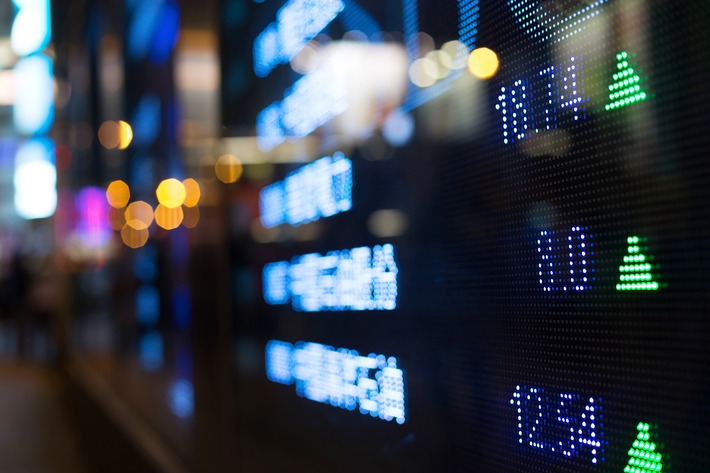Asian stocks advanced on Tuesday as thawing US-China tensions boosted confidence and bargain-buyers moved in.
Japan’s Nikkei closed higher as investors hunted for beaten-down technology stocks while Hong Kong also eked out small gains. But China stocks slipped as new Covid outbreaks in the country’s industrial east brought back the threat of new curbs and shutdowns.
Tokyo’s Nikkei share average advanced 1.03% to 26,423.47 while the broader Topix rose 0.5% to 1,879.12.
Also on AF: China Calls NASA Chief ‘Colonial,’ Says Won’t Takeover Moon
“Investors took a fresh view on technology and growth stocks as US yields stabled, they were buying back shares that fell too much,” Shoichi Arisawa, general manager of the investment research department at IwaiCosmo Securities, said.
News that US President Joe Biden is considering scrapping tariffs on a range of Chinese goods to curb inflation also lifted overall sentiment, Arisawa said.
In Japan, Uniqlo owner Fast Retailing jumped 4.33% to become the biggest boost for the Nikkei on Tuesday. Technology investor SoftBank Group rose 1.8% and chip-equipment maker Tokyo Electron gained 0.38%.
China and Hong Kong stocks closed roughly flat on Tuesday as concerns over the worsening Covid-19 situation offset optimism from recovering services activities in the country. MSCI’s gauge of Asia Pacific stocks outside Japan rose 0.17%.
China’s blue-chip CSI300 index ended down 0.1% at 4,489.54, while the Shanghai Composite Index ended flat, at 3,404.03 points.
The Hang Seng Index edged up 0.10%, or 22.72 points, to 21,853.07 while the Shenzhen Composite Index on China’s second exchange dropped 0.55%, or 12.33 points, to 2,232.98.
Euro Sinks to Two-Decade Low
“Over the past week, the Covid-19 situation has clearly worsened,” wrote Ting Lu, Nomura’s chief China economist. “Another wave of Omicron could prompt a return to a downswing phase, even though the timing of such an occurrence is uncertain.”
In Hong Kong, healthcare and energy shares rose, but financials and property sectors fell.
Elsewhere across the region, stocks of trade-reliant Asian countries like the Philippines, South Korea and Indonesia surged between 1.7% and 1.9%.
Indian stocks edged back with Mumbai’s signature Nifty 50 index down 0.15%, or 24.50 points, to close at 15,810.85.
Globally, the euro sank to a two-decade low versus the dollar as another surge in natural gas prices reignited worries about the health of the euro zone economy and data showed euro zone business growth slowed sharply in June.
The euro tumbled 0.9% against the dollar to $1.0325, its weakest since December 2002. The dollar index gained 0.8% to 105.98, a new two-decade high for the currency.
Australia Interest Rate Hike
Elsewhere, Australia’s central bank became the latest to extend its interest rate tightening cycle, hiking by a second straight 50 basis points, although the Aussie dollar fell 0.8% as investors interpreted the bank’s accompanying messaging to be more dovish than expected.
With US markets closed on Monday, trading is expected to be livelier on Tuesday and Wall Street reversed early gains and headed lower by 0825 GMT.
Tuesday offers little in the way of key economic data but later this week both the US Federal Reserve and European Central Bank release their minutes from recent policy meetings and on Friday widely watched US payrolls data are due to be published.
Redmond Wongmarket strategist, Greater China, at Saxo Markets Hong Kong, said traders would continue to closely watch the trajectory for inflation and growth in major markets.
South Korea Inflation Surges
“Market participants are still assessing the impact of the tug of war between inflation being at persistently elevated levels and signs pointing to potentially an incoming US recession,” he said.
Those concerns were front and centre in South Korea, where June inflation accelerated to its fastest since the Asian financial crisis, fanning expectations the central bank could deliver a 50-basis-point rate rise for the first time next week to cool prices.
US treasury yields returned from the holiday marginally higher, with the yield on benchmark 10 year notes at 2.93% but failing to push back above the symbolic 3% level.
Brent crude futures rose 0.2% to $113.8 a barrel, while US crude oil increased 1.73% to 110.31 a barrel. Spot gold dropped 0.29% to $1,804 an ounce.
Key figures
Tokyo – Nikkei 225 > UP 1.03% at 26,423.47 (close)
Hong Kong – Hang Seng Index > UP 0.10% at 21,853.07 (close)
Shanghai – Composite < DOWN 0.04% at 3,404.03 (close)
New York – Dow > UP 1.05% at 31,097.26 (Friday close)
- Reuters with additional editing by Sean O’Meara
Read more:
South Korean Inflation Hits a 24-Year High, Straining Economy
Yellen Flags ‘Unfair’ Practices in Call With China’s Liu He























